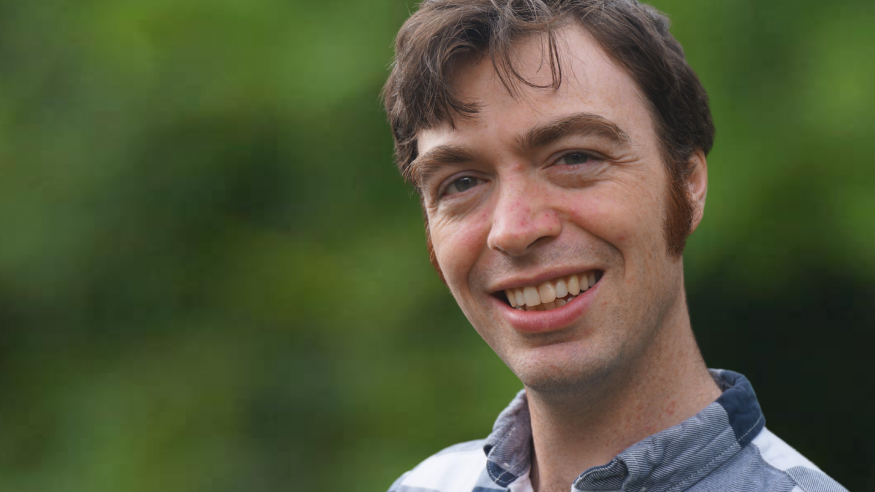Meet the Researcher – Dr John Harvey
18 October 2023
Dr John Harvey, a UKRI Future Leaders Fellow, specialises in curvature in the School of Mathematics. We asked him a series of questions to find out more about the person behind the research.
1) What is your main area of research?
Curvature – in pure mathematics, mathematical physics and data science.
Most people remember from school that the angles in a triangle add up to 180°. That’s not true in curved spaces. On the surface of the earth, the angles will add up to more than 180° because of positive curvature. This positive curvature means that different paths tend to come back together, which limits the possible shapes you can create. I am particularly interested in understanding these limitations.
2) Why did you become a researcher/academic?
Becoming a research mathematician has been a somewhat winding path for me. I made several attempts not to be a research mathematician, taking physics and statistics courses in my undergraduate, completing an MSc in Finance and working in legal services. In the end, I had to admit to myself that I had no choice but to do a PhD in Mathematics!
3) How is your research having impact?
My work has led to the strengthening of global mathematical communities interested in the geometry of symmetries. I play my part in the never-ending task of bringing mathematical fields together to find unexpected ways to support each other – it never occurred to me even a year ago that I might be using my specialised knowledge to contribute to work on understanding the nature of space-times. I have created the opportunity for new mathematical knowledge to be generated. All of this has meaningful impact.
4) What are the next steps for your research projects?
Right now I’m beginning to work on some research projects that will improve our understanding of how curvature affects the shape of space and time. I’m working on this problem with some researchers in Vienna and Oxford. The current understanding of this problem is very good as long as you assume that space and time are reasonably smooth – free of kinks and creases, so to speak. It’s not clear how true that necessarily is. Physically speaking, space and time might not even be fundamental concepts at all! Whatever the truth of the matter, the mathematics is extraordinarily interesting.
5) Do you have any advice for future students considering becoming an academic/researcher?
Don’t underestimate the importance of conversation. It can be hard as a student to even understand what mathematical research is, but you can talk to your lecturers to see if you might be able to get involved with some original research, especially by pushing a BSc or MMath project a bit further than usual.